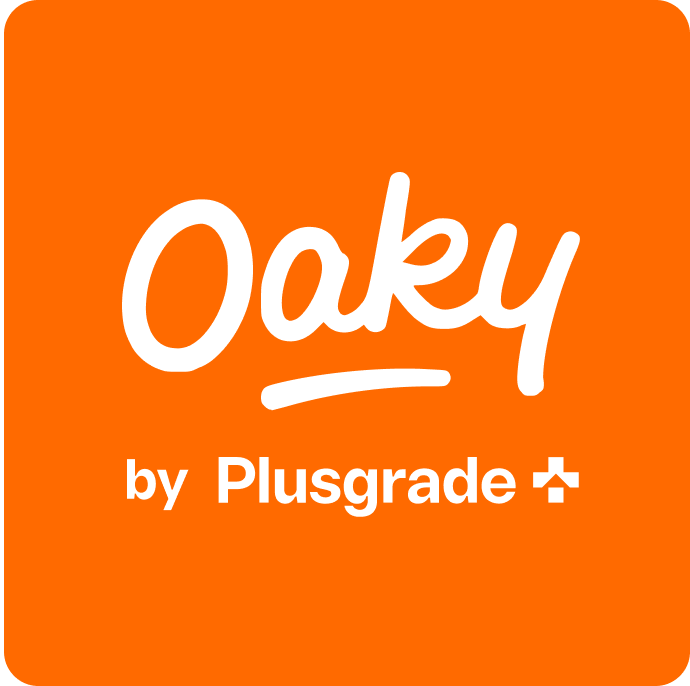Hotel front desk upselling: Ultimate guide to profitability
Oaky
•
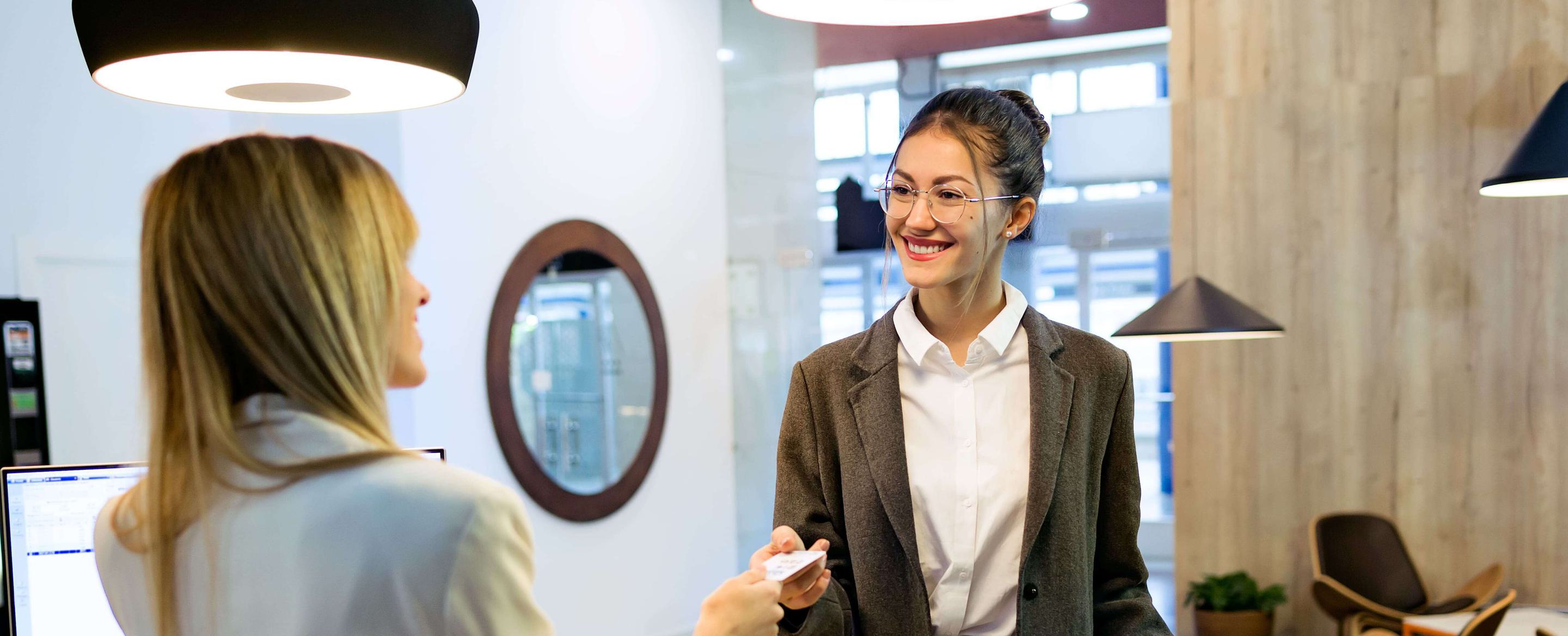
Hotel front desk upselling has been around for decades and gained even more traction with the introduction of PMS and CRM systems in the 1990s and early 2000s. Despite this, many hotels still rely on outdated manual methods and struggle to scale their upselling strategies. As a result, these efforts often yield minimal outcomes, frustrate teams, and cause many hoteliers to abandon upselling altogether.
But it doesn’t have to be this way. By shifting from traditional approaches and reframing front desk upselling as a “win-win-win” where it’s beneficial for staff, guests, and the hotel, it can become a rewarding and highly profitable practice. In fact, when done right, front desk upselling can generate a 2% - 5% TRevPAR contribution.
In this guide, we’ll cover everything you need to know about hotel front desk upselling:
How to implement a scalable strategy
Techniques to motivate and train your team, ensuring engagement and retention
Setting goals and tracking key KPIs
Guest psychology and proven upselling tactics
How automation can supercharge your efforts.
What is hotel front desk upselling?
Hotel front desk upselling is a sales technique where a front desk agent suggests hotel extras (cross-selling), higher room category, and other supplementary services to guests during check-in. The goal of this technique is to generate additional (ancillary) revenue for the hotel and enhance the guest experience.
Why is front desk upselling important?
1. Boost ancillary revenue and TRevPAR
The check-in is one of the best opportunities for upselling hotel rooms and additional services to your guests. It allows you to generate more revenue and reduces customer acquisition costs by capitalizing on existing bookings.
There’s also a psychological aspect at play. Guests arriving at the hotel are already committed to their stay. This makes them more receptive to suggestions for enhancing their experience. When a front desk agent positions upsells as value-adding rather than making a hard sale, guests are more likely to accept them.
It’s no surprise that front desk upselling can generate 5–9 times more revenue than pre-arrival upselling thanks to the live interaction between front desk agents and guests.
2. Enhance guest satisfaction and loyalty
Personalization makes guests feel valued. Front desk agents have the opportunity to engage with guests directly and tailor recommendations based on preferences and needs. For instance, offering a hotel room upgrade or spa package based on guest segments and data can take their visit from ordinary to exceptional.
Thoughtful upselling can create a positive, memorable impression. If guests feel that the upsell genuinely caters to them, they are more likely to become loyal guests.
Convenience is another reason front desk upselling increases guest satisfaction. Guests often look for ways to elevate their stay but may be unaware of available hotel offerings. Personalized suggestions provide a convenient way for guests to access additional amenities without searching for them.
3. Drive team motivation and retention
Upselling in the hotel industry can—and should—be a motivating and fun activity for your team. Otherwise, your strategy is unlikely to be successful. Training and incentivizing your team to upsell at check-in can spark healthy competition and encourage them to achieve better results.
Hotels that have successfully implemented incentive programs alongside a front desk upselling strategy often highlight it as a competitive advantage for attracting and retaining talent.
On top of that, upselling creates opportunities for professional growth and career advancement. Agents who excel in this area are often seen as future leaders, which contributes to employee retention.
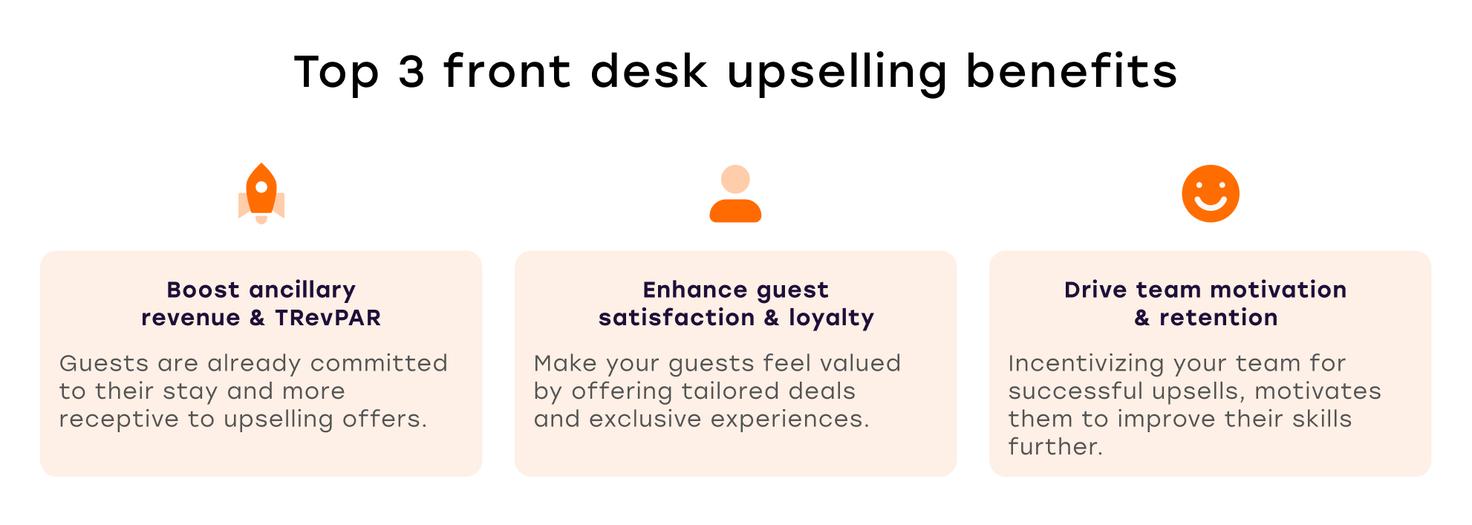

Traditional front desk upselling vs. Next-generation upselling
As mentioned before, many hoteliers still rely on old traditional upselling methods. But what does it exactly mean? And how is next-generation upselling different?
We spoke with Pablo Torres, a hospitality consultant, and Oaky’s Front Desk Upselling coach, to explain these differences and why it’s time to embrace next-generation upselling.

Traditional front desk upselling:
Manual process: Relies on the front desk agent's initiative and interpersonal skills. Offers are typically made on the spot without much prior information about the guest or strategy.
One-size-fits-all approach: Upsells are often not tailored to a guest persona (hard sells). Agents offer what the hotel wants to sell without considering the guest’s wants and needs.
Minimal or no guest data usage: Upsells are based on assumptions or limited knowledge of the guest’s preferences and history.
Inconsistent results: Success depends on the agent's skills and motivation, leading to inconsistent upselling outcomes.
Limited time to upsell: Front desk agents have a limited window during check-in to pitch upsell opportunities, which can be rushed or overlooked, especially during busy periods.
Next-generation upselling:
Automation via hotel upselling software: Uses technology, such as hotel upsell software, specifically designed to automate the upselling process. Technology can consolidate the process by letting you keep track of team performance, setting goals and providing rewards, fostering healthy competition and upselling culture. It helps effectively capitalize on upselling opportunities at check-in. When integrated with your PMS (property management system), it also saves time and manual effort by streamlining upselling processes (e.g., updating a guest folio automatically upon a successful upsell).
Personalization: Leverages rich guest data, such as preferences, booking history, and purpose of stay, to tailor offers to individual needs and desires.
Data-driven insights: Provides agents with real-time analytics and insights, empowering them to make informed recommendations that align with guest needs.
Improved efficiency: Reduces pressure on front desk staff, as automated systems handle much of the work, allowing agents to focus on guest interaction.
Motivated teams: Thanks to incentive programs and rewards, agents feel motivated to excel at upselling.
Integrated into the entire guest journey: Goes beyond the front desk, offering upsells at multiple touchpoints, before, during the stay, and at check-in.
The goal of next-generation upselling is clear: to simplify the process, make it enjoyable and consistent for hotel teams, and boost hotel profitability.
Unlike traditional upselling, which often feels like "throwing spaghetti at the wall" with agents pitching random offers without insight, next-gen upselling focuses on personalization—offering the right upsell to the right guest with a clear strategy in place. In this guide, we’ll help you explore how to move away from outdated practices and transition to front desk upselling that benefits everyone—your hotel, your guests, and your team.
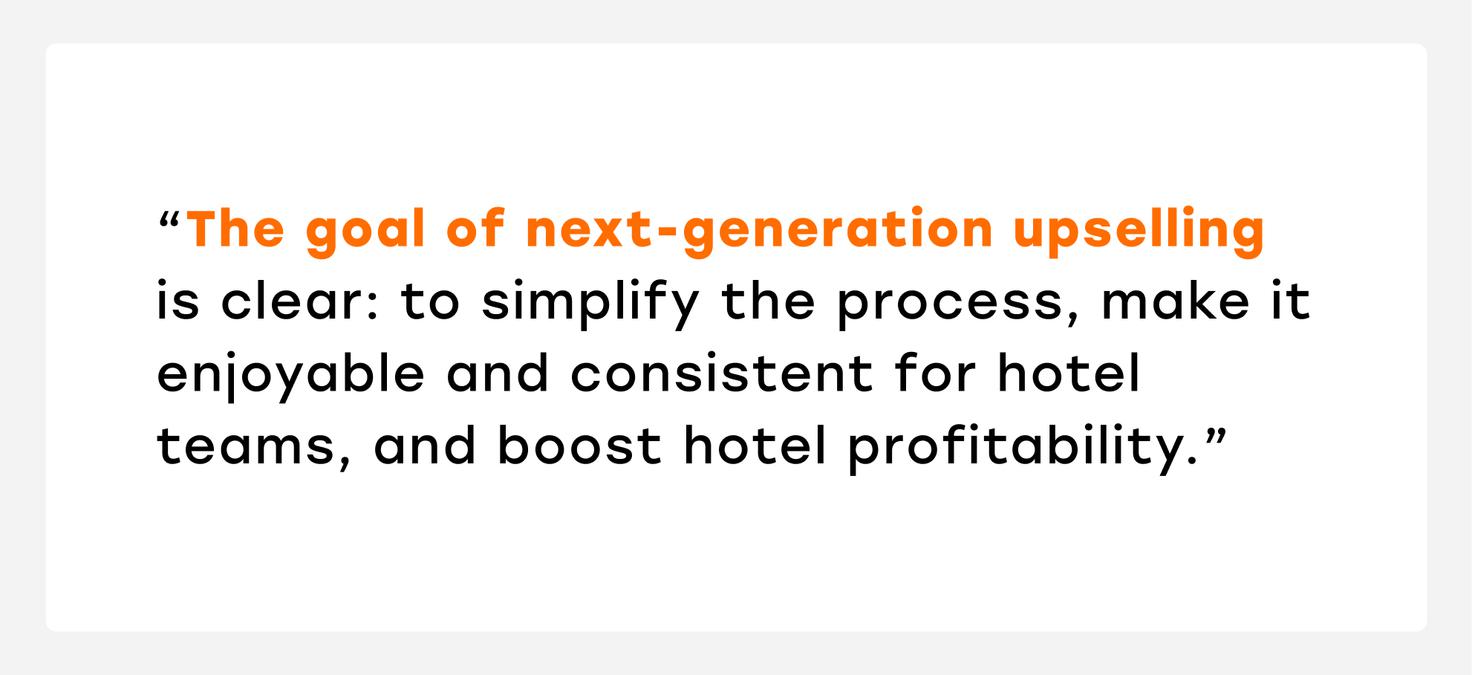

Establishing an effective hotel upselling program
The top 3 challenges holding hoteliers back from establishing a robust hotel upselling program
What stops you from establishing a viable hotel upselling program and getting your entire team on board? According to Pablo Torres, there are three major challenges standing in the way of realizing the full hotel's potential:

Feeling overconfident that you’re already excelling at upselling
Many hoteliers still using traditional upselling methods believe they’ve already hit their ceiling.. They’re content with their current results and may not realize there are more effective ways to upsell.
A wake-up call often comes when they compare themselves to the competition. Seeing the impressive results other hotels achieve with next-generation upselling often prompts hotel managers to rethink their approach. As Pablo Torres points out, when it comes to front desk upselling, the sky’s the limit. There’s always room for improvement, even when it seems otherwise.
Front desk upselling process feels too tedious and time-consuming
Traditional upselling methods can be overly time-consuming and stressful for front desk teams. Agents have to juggle multiple tasks:
Interacting with guests
Reading cues
Quickly brainstorming upsell ideas from a spreadsheet or PMS
Checking pricing
Pushing costly premium rooms or services they’re told to sell
If successful, they must then update the guest folio in the PMS and ensure the spreadsheet is accurate to avoid overselling the same deal.
All this should happen while maintaining a warm smile and providing a welcoming experience.
To make matters worse, many agents aren't compensated for their efforts. This leaves them unmotivated to engage with guests or improve their upselling skills. This approach fails to drive meaningful upsell revenue and often leads hotels to abandon their upselling efforts.
Lack of training impacting revenue consistency
Thirdly, not every front desk agent is a natural salesperson. Most people don’t know how to guide a conversation toward an upsell or present options without making them feel like a hard sell.
As a result, hotels often rely on one or two team members who enjoy upselling, while the rest of the team remains unmotivated and untrained. Without proper training and incentives, many agents may think, “Why should I bother?” This reliance on luck or the initiative of a few individuals limits potential. With a fully trained, motivated, and engaged team, the results could be significantly better.
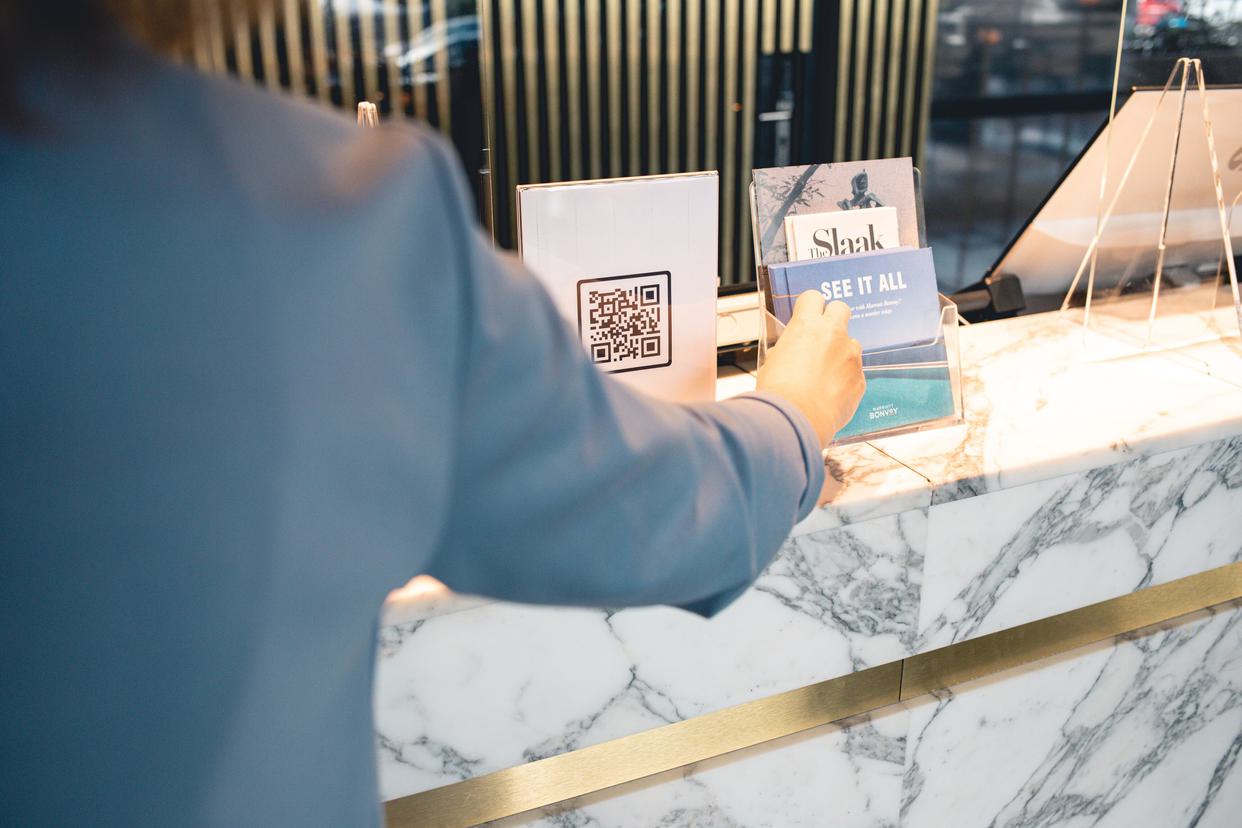
Developing an effective hotel upselling program for long-term success
So, where do you start to tackle these challenges and create a winning program that delivers the benefits outlined earlier in this guide?

Building a hotel upsell program is a multi-step process that requires your entire team to work together to make it a success. Here you can do it by following the key 9 steps:
Know your guests: Understand what different guest segments want to create personalized offers that resonate with them.
Appoint an upselling champion: Find a passionate team member to lead upselling efforts and inspire the team to achieve more.
Gain a buy-in from the entire team and departments involved: Get everyone on board by showing how upselling benefits the whole team, and back it up with training and incentives.
Reward success: A good incentive program keeps the team motivated and helps upselling become second nature.
Integrate upselling into the guest journey: Look for upsell opportunities before and during a guest's stay as well as at check-in.
Make it routine: Include upselling in your standard procedures and daily team talks, so it's always top of mind.
Set clear goals: Track how everyone's doing and set personalized targets to keep things challenging and fair.
Keep improving: Review what's working and what's not. Offer support and feedback, and even add a bit of friendly competition to the mix.
Personalization is key: Remember that the best upsells are the ones that feel tailor-made for each guest. Use guest data to offer upgrades and services that truly enhance their stay.
Tech Can Help! Consider investing in hotel upsell software to automate the process and make it easier for your team to offer personalized experiences that guests will love.

How to identify upselling opportunities at the front desk?
The key to successful upselling at check-in is spotting the right opportunities in the moment.
Watch this video from Pablo Torres, Hospitality Consultant and Front Desk Upselling Coach at Oaky, as he breaks down three key ways to identify upselling opportunities. Learn how to read visual, reservation, and conversational cues to know exactly when guests are most open to an upgrade!

Crafting irresistible offers for front desk upselling
One of the fears holding front desk agents back from upselling deals is the fear of rejection. However, with the right approach, rejections can be minimized. The secret sauce to successful upselling is making it feel like you’re adding value rather than just making “a transaction.” Here’s how to make it work:
1. Suggest offers that add real value to a guest's stay
An upsell offer should be seen as an opportunity to enhance the guest’s stay, not just a way to increase revenue. This means offering options that align with the guest's needs and desires.
For example, a business guest who needs a good night’s sleep after a long day of meetings will value a quiet corner room or a service that improves their efficiency (e.g., express ironing service). A family with kids might appreciate connecting rooms or the convenience of a babysitting service. Honeymooners, on the other hand, might be willing to spend more for added comfort and luxury by upgrading to premium rooms, which can significantly enhance their experience and provide higher margins for the hotel.
It’s crucial to seek a win-win scenario where both the hotel and the guest benefit. This way, a guest will perceive an upsell as an improvement to their stay, making them less likely to reject.
2. Focus on authenticity
With 74% of travelers seeking advice from locals, guests are looking for more than just a place to sleep. They want experiences that connect them to the destination. By positioning upsells as opportunities to immerse guests in local culture, unique activities, and experiences, front desk agents can frame these offers as authentic ways to enhance their stay.
3. Sell the experiences, not just the features
Focus on the emotional and experiential benefits of the offer, rather than just listing its features or technical details.
For example, instead of simply describing a deluxe room as having “a king-sized bed, extra space, and additional amenities,” present it as “a private retreat with breathtaking city views where you can unwind after a day of exploring.” When promoting dining experiences, highlight the ambiance, the chef’s specialty, or how the meal creates a memorable moment, rather than just mentioning the menu. By painting a picture of the experience and the emotions it evokes, you connect with the guest's aspirations, making the offer far more enticing.
4. Promote exclusivity
Exclusivity creates a sense of value and appeal, making guests feel they are getting access to something special that not everyone can enjoy.
For instance, position an upgrade as “an exclusive package reserved for our most valued guests” or highlight that “only a few suites are available with these stunning ocean views.” Guests are drawn to the idea of experiencing something unique which makes it come across as a privilege rather than a routine upsell. This strategy taps into the desire for luxury, rarity, and status, making it an effective motivator for accepting an upsell.
5. Leverage limited-time offers
Scarcity and urgency are well-known psychological drivers. Present an upsell as a limited-time offer to create a sense of urgency to encourage guests to make a decision on the spot.
For example, you can frame it as, “This exclusive dining package is only available for tonight,” or “Upgrade now for just $50—it’s a special deal offered only at check-in.” By limiting the availability of an offer, you create an immediate need for action, reducing the likelihood of hesitation.
Another question we often hear from hoteliers is what to upsell at the front desk. While breakfast and parking might seem like the easiest options, going beyond these deals can help you generate higher profits. Use pre-arrival upselling to sell breakfast and parking deals, and leverage the check-in moment to sell higher-margin deals.

Discover the 7 top upselling offers

How to manage and motivate your hotel front desk team
Managing and motivating your front desk team
A motivated front desk team is a key factor in your upselling success.
Their motivation and the way they interact with guests directly impact guest satisfaction and your upselling results. Due to the demanding nature of front desk roles, and the fact that they are typically lower paid, employee turnover can be high, making your hotel upselling program a futile attempt. Therefore, it is important to incentivize and upskill your team to ensure job satisfaction and retention, transforming upselling into a fun and rewarding process.
Which hotel incentive program should you implement?
The most effective way to incentivize front desk staff is to provide monetary rewards. A sales-based commission system allows employees to earn a percentage of the revenue they generate through upselling and cross-selling. This motivates employees to promote hotel's amenities and services and rewards them for their hard work.
Many hotel managers hesitate to offer monetary incentives for upsells, but hospitality expert Pablo Torres explains why they are important:
That said, monetary incentives don’t have to be limited to just commissions. To keep things fair and exciting, hotels can introduce bonus challenges such as:
Rewarding the employee who sells the most room upgrades
Giving a bonus for the highest total upsell amount
Offering a special prize for selling a Presidential Suite X times in one month.
You can also consider non-monetary incentives if offering monetary ones might cause complications for your hotel or your employees seek something other than financial rewards. Some non-monetary incentives include:
Extra time off
Wellness and health benefits
Recognition programs
Career growth opportunities.
All in all, by combining monetary and non-monetary benefits, you can create a work environment where front desk employees feel valued, motivated, and empowered to succeed. This ultimately leads to increased job satisfaction, improved performance, and reduced employee turnover.
How to implement a successful hotel incentive program in practice?
Once you’ve defined your incentive program structure, goals, and KPIs, the next step is putting it into action. However, many hoteliers face challenges when it comes to actual implementation. The most common issues include:
No system to track employee performance
No system to monitor upsold rooms and services
Lack of visibility for front desk teams on potential rewards for upselling
Inability to track distributed rewards, making it difficult to ensure fairness

Many hoteliers initially rely on spreadsheets, but as the program grows, managing it becomes cumbersome and inefficient. This manual approach is unsustainable and makes it difficult for front desk managers or upselling champions to fairly administer the program and distribute rewards.
That’s why, to overcome these challenges, many hoteliers turn to automated upselling solutions. For example, with Oaky’s Front Desk Upsell module, you can:
Provide an easy-to-use system for front desk agents, enabling them to upsell in real time with smart prompt
Track employee performance
Manage commissions and rewards
Give front desk agents instant visibility into their potential earnings from successful upsells.
With these features combined, your team stays motivated, upselling becomes smoother, and managing the incentive program becomes much easier for front desk managers and upselling champions.
Our customer feedback speaks for itself. This is what Linus Svedberg, Front Office Manager at Quality Hotel Globe, highlighted in his success story about using Oaky for front desk upselling and successfully implementing an incentive program with the help of the software.
How to identify and coach front desk upselling champions
One of the most common pitfalls hotels face when implementing an upselling program is not having an upselling champion. Upselling champions are ambitious individuals who work as front desk managers, team leads or assistant managers dedicated to driving upselling success, keeping the team motivated, and leading by example.


But how do you identify the right person for this crucial role?
Ket traits of an upselling champion:
Ambition and drive – A motivated individual can energize the entire team and inspire continuous growth.
Trustworthiness and transparency – The ideal candidate should communicate clearly, be ready to provide constructive feedback, and foster a culture of openness.
Charismatic and outgoing personality – A well-liked, positive team player will naturally encourage others and create excitement around upselling.
Business acumen and confidence – Strong commercial awareness, an understanding of revenue streams, and the ability to see the bigger picture make a great upselling leader.
Choosing the right upselling champion can make all the difference in turning an upselling strategy into a long-term success.
What is the scope of a hotel upselling champion?
The mission of a hotel upselling champion is clear—drive your front desk team forward and amplify results. This can be achieved by assigning the following responsibilities to the upselling champion:
1. Manage your hotel upselling program:
Set goals
Track team’s performance
Update the team, e.g., Handle daily stand-ups to review goals and highlight high-potential opportunities.
2. Train and motivate the team: Coach the team to instill confidence and keep morale high. For example, one might conduct role-play workshops to teach the team about the most effective upselling tactics and provide feedback to their peers.
3. Monitor performance: Review results and adjust strategies, e.g., provide updates on the best-selling deals and top performers.
Collaborate with other departments: Work closely with other teams to share insights and row in the same direction. E.g., during low occupancy help fill up higher category rooms to boost TRevPAR.
Front Desk Training: How to train your team to ensure stellar results
Many hoteliers underestimate the role of training in driving meaningful results. To explore this, we spoke with Penn Chai, Lead Consultant at Heyward Group and Front Desk Upselling Expert, about the value of upselling training, strategies to overcome team resistance, and the key elements of an effective training program.
Why training is crucial for long-term upselling success
1. Instill upselling confidence in your team
Training equips front desk teams with the confidence and skills needed to upsell effectively. A well-trained team understands not only the products and services they are offering but also the psychology behind guest decision-making.
Confidence plays a key role in successful upselling. Within any team, some individuals will naturally be more comfortable upselling than others. Encouraging them to share their techniques and experiences can be invaluable, helping colleagues refine their approach in a way that is specific to the property.
2. Build a culture of continuous learning and improvement
Training also fosters a culture of continuous improvement, allowing teams to refine their approach and adapt to changing guest preferences. Practicing upselling in a training environment allows teams to build confidence, ensuring smoother, more natural interactions with guests. This consistency leads to stronger long-term success and higher overall conversion rates.
3. Make upselling feel natural for your teams and guests
Without structured training, upselling efforts can become inconsistent and transactional, rather than guest-centric and value-driven.
Additionally, upselling in a luxury or highly service-focused hotel can be nerve-wracking, as every guest interaction is scrutinized, and maintaining the hotel’s reputation is a key performance indicator.
Training plays a pivotal role in shifting your team’s mindset, positioning upselling as an opportunity to enhance the guest experience rather than a mere transaction. By focusing on adding value, both the team and guests benefit, leading to improved satisfaction and engagement.
How to overcome team resistance
Resistance to upselling often stems from a lack of confidence, misunderstanding of its purpose, or concerns about coming across as too ‘salesy.’
Overcoming this requires a shift in mindset—from simply selling to enhancing the guest experience. When teams understand that upselling is about offering added value rather than pushing products, it becomes a natural extension of great hospitality.
Confidence is key, and training plays a crucial role in overcoming resistance. When teams see how upselling directly impacts multiple KPIs, such as revenue, guest satisfaction, and overall hotel performance, they are more likely to embrace it.
Understanding your team’s individual motivations is also essential. While financial incentives work for some, others may value recognition, career development, or work-life balance more. Thinking beyond monetary rewards and tailoring incentives accordingly can increase engagement.
A glimpse into what an effective training program looks like:
An effective upselling training program is interactive, practical, and tailored to the specific needs of the hotel. It should include:
Segmentation and personalization – Understanding different guest types and tailoring offers accordingly.
Guest psychology and active listening – Recognizing unspoken wants and needs.
Upselling language and etiquette – Framing offers in a way that feels natural and guest-centric.
Influencing and selling skills – Building confidence to make persuasive recommendations.
Practical roleplays and application – Allowing teams to practice and receive feedback in real-life scenarios.
Ongoing coaching and incentives – Ensuring the training is reinforced beyond the initial session.

What are the best front desk upselling techniques?
Effective front desk upselling is not only about what you offer. It is also about how you do it.
This is why mastering upselling techniques is essential. The good news is that there are several tried-and-tested methods that you can start implementing right away to skyrocket your results.
1. Reconfirm your guest's choice
The first rule of upselling is never to point out the drawbacks of the room/service your guest has chosen. At this stage, your aim is to establish a good relationship with your guests. Mentioning the flaws of their choice won't help in this regard and is unlikely to produce a positive impression about you and your hotel.
Only after you've reconfirmed your guest's excellent choice, you can move on to presenting relevant upgrades and services. For instance, you can say, “I see you reserved a table at our restaurant — you will for sure not regret it! Would you like to have breakfast throughout your stay as well?”
2. Quote incremental price
Stress the affordability of room upgrades by mentioning only the incremental price guests will need to pay. Instead of saying, “You have a great chance to upgrade to a deluxe room for €250”, you should say, “For only €20 extra, you can get our deluxe room with a hot tub and a terrace.”
Be as specific as possible and highlight the additional features, value, and amenities when suggesting a room upgrade/service.
Don't hesitate to use visual content when offering a room upgrade. People remember 65% of what they see, compared to 10% of what they hear. So, demonstrating the photos of the room will ensure your guests can perceive the information better.
3. Use rate framing
Special offers and discounts are powerful marketing weapons you can employ when offering extras or room upgrades.
The trick here is to mention a higher price first and then follow up with a special offer. You might state: “Normally, our junior suite, which has the most stunning view in our hotel, costs $250, but for your dates, it's available for $210.”
4. Ask if guests have any special requests
Ideas on what to upsell to your guests might be hidden in plain sight and all you need to do is just ask. Start with a simple question like, “Do you have any special requests?”
Then, go further and analyse the guest and the situation to come up with more in-depth, follow-up questions.
Depending on who is standing in front of you, your questions might be:
Family with kids - Would you like a special menu tailored to your dietary needs? Would you like a more spacious room with a kid's corner?
Leisure travelers (couple) - Would you like to book a romantic dinner and taste our seasonal menu? Would you be interested in our special wine-tasting tour?
Business travelers - Would you like to upgrade to a quieter room with a working desk? Would you be interested in our business lunch option?
5. Suggest bundles
Who doesn't like bundles? Bundles and packages look extremely appealing to your guests because they take the decision-making burden off their shoulders.
For example, you can suggest a half-board supplement throughout the entire stay plus a one-time spa treatment or full board with a fun boat cruise deal. It's best practice to make a few variations of your deal so guests can customize it to their liking.
Front desk upselling script
"Welcome to [Hotel Name], [Guest’s Name]!
It’s great to have you with us! How was your trip, and where are you traveling from today?
I see you’ve reserved one of our classic rooms—an excellent choice! However, I wanted to mention a special opportunity we have today. Our premium suite, which is typically in high demand, happens to be available. For just an additional €30, you could enjoy the convenience of extra space and breathtaking views from your windows. In my opinion, this room offers the best sunset views in the hotel. Would you be interested in this exclusive upgrade?
Since you're visiting as a couple, we also have some fantastic offers on our restaurant and spa experiences. Many of our guests find them to be the perfect way to relax and indulge. Would you like to hear more details?"
Final thoughts
Not only will upselling in the front office help you meet and exceed guest expectations, but it will also let you unlock another lucrative revenue stream. Making it a common practice at your hotel is easier when you have an automation solution.
While a big part of upselling success depends on communication skills, the knowledge about your current hotel offers, promotions, and access to the necessary information about your guests can work wonders for your financial results.
Curious to learn more about how upselling automation can save time and drive more revenue?
